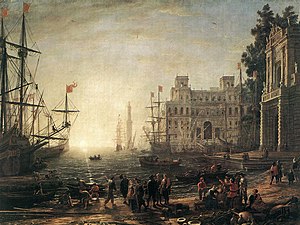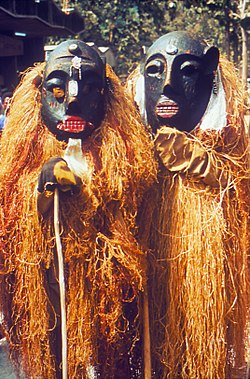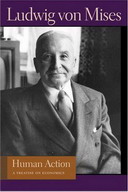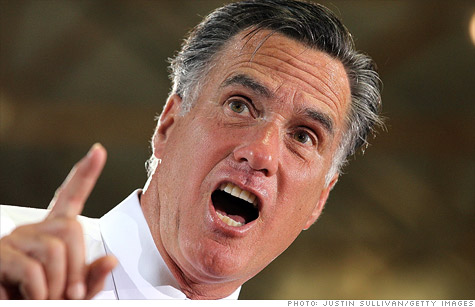In my
last post I focused on the free market, that often criticized and much despised process of free individuals mutually and voluntarily exchanging their property without direction or interference from the state.
The most common criticism of the free market is that it is unfair, i.e., not all traders on the free market are endowed with the same level of talent, ambition, fortitude and good health. Some in society cannot or do not want to participate in the free market to support their lifestyle. They are repulsed by the market's competitive nature. They find the judgement of the market harsh and dehumanizing. They fear failure or envy success.
Another popular criticism of the market is that its outcomes are inequitable. Some individual traders are successful; some not so successful; and others, those who refuse to participate, are relegated to surviving on handouts from others. These critics value equality of outcome, which is anathema to free market capitalism. They lobby for a system of property and exchange which is controlled by authority and in which equitable outcomes are coerced.
In socialist dream societies every individual has more or less the same standard of living and enjoys more or less the same "necessities" of life. Of course, these "necessities" are defined by the societal authority and are provided by the societal authority by means of robbing Peter to pay Paul. The authority taxes the productive and redistributes the confiscated loot to the less productive.
Such a system is by nature uncompetitive. The talented individual is granted the same outcome as the untalented. Ambition earns the same reward as sloth. The resolute and the spineless enjoy the same standard of living. Health and infirmity are equivalent conditions. There is no success, no failure, no envy.
The reality of course is that those in authority cannot help but keep for themselves a larger share of goods and services than they distribute to the masses. The elite in power use their position and authority to their own great advantage. They exempt themselves from the laws they make to govern the masses. They eat the best food, live in the most magnificent palaces and surround themselves with adoring sycophants who do their bidding in return for dropped table scraps. Their life is one of luxury and ease as compared to the bleak, subsistence-level living they impose on their subjects.

Ironically, this variety of inequality and unfairness is discounted by the socialist dreamer as something that goes with the territory. In other words, socialist leaders deserve the best. They are, after all, shouldering the burden of decision-making for the masses. Their responsibility is overwhelming. Thus, their expertise and extraordinary wisdom and vision must be rewarded with creature comforts undeserved by the ordinary citizen.
How can the ordinary citizen be certain that those in authority are truly the best and the brightest among them? The answer is
democracy. As the saying goes, there is wisdom in numbers. If, as the dreamers envision, the majority of the masses elect their maximum leader, then that maximum leader is sure to be the wisest and most beneficent leader of all...so long as the election is fair and honest. That is, so long as everyone is allowed to vote, and the votes are tallied honestly. If such is the case, the cream must rise to the top and the will of the people must be served.
And what of the minority who cast dissenting ballots? They will learn to love and obey their new maximum leader and all his edicts for the sake of community peace and the common good.
It is more than ironic that those socialists who value fairness and equality with religious fervor hold up as their god
economic democracy. Why is this ironic? Because the free market, which socialists despise, is the purest form of economic democracy ever created. Ludwig von Mises had much to say about this subject. In his book
Bureaucracy he writes:
The capitalist system of production is an economic democracy in which every penny gives a right to vote. The consumers are the sovereign people. The capitalists, the entrepreneurs, and the farmers are the people’s mandatories. If they do not obey, if they fail to produce, at the lowest possible cost, what the consumers are asking for, they lose their office. Their task is service to the consumer. Profit and loss are the instruments by means of which the consumers keep a tight rein on all business activities.
In
Planned Chaos Mises writes:
The market is a democracy in which every penny gives a right to vote. It is true that the various individuals have not the same power to vote. The richer man casts more ballots than the poorer fellow. But to be rich and to earn a higher income is, in the market economy, already the outcome of the previous election. The only means to acquire wealth and to preserve it, in a market economy not adulterated by government-made privileges and restrictions, is to serve the consumers in the best and cheapest way. Capitalists and landowners who fail in this regard suffer losses. If they do not change their procedure, they lose their wealth and become poor. It is the consumers who make poor people rich and rich people poor.
And in
Human Action he writes:
"The democracy of the market consists in the fact that people themselves make their choices and that no dictator has the power to force them to submit to his value judgments."
The question is: Why do those collectivists who adore
economic democracy and
democratic socialism damn free market capitalism which, as Mises describes, is the very definition of economic democracy?
The answer lies in confusion and misunderstanding. Socialist critics conflate free market capitalism, as described by Mises, with crony capitalism, as it exists today in the United States.
As I've said before, socialism and capitalism are separate and contradictory economic systems. Once those in authority overrule the individual's right to own property and to trade property, freely and voluntarily, without state intervention, that economic system is no longer free market capitalism, but socialism, more or less, depending on the degree to which the state intervenes.
Property is either owned and controlled by individuals or it is not. The market in which property is traded is either free or it is not. If it is not, then that system is authoritative and socialistic.
But let's put aside our discussion of capitalism and socialism for the moment and examine the leftists' beloved democracy in a bit more detail.
Would leftists and progressives still hold democracy up as their god if elections were rigged? Of course not. The hallmark of a free, fair, just and equitable election is a free and voluntary vote, uncoerced by a third party or an authority. Moreover, the candidates must stand for election on equal ground, i.e., they must be allowed the same opportunity to speak and be heard, to solicit votes, to travel to all corners of the district, to gather assemblies, to buy advertising, to appear on mass media and to print pamphlets. We can all agree that any interference by an authority with a candidate's ability to do these things is unfair and unjust cronyism.
Furthermore, the election ballots must be honestly counted and the candidate with the most votes must be declared the winner. We can all agree that any election not conducted in this manner makes a travesty of democracy. In short, a rigged election is no election at all; it is tyranny attempting to hijack the halo of legitimacy that a just election confers on authority.

Now consider economic democracy as it is currently practiced in the United States. Certain markets are not open to all producers and suppliers who want to compete. The federal government restricts the sale of certain commodities to favored producers. Physicians, nurses, pharmacists, and taxi drivers must meet strict requirements and obtain restrictive licenses or they are forbidden to practice their trade. Government authorities, like the FDA, OSHA, EEOC and a host of other dictatorial, alphabet-soup agencies, restrict the business of certain suppliers and producers by imposing onerous and outlandish requirements to do business. These requirements are often purposely convoluted and expensive, insuring that only the wealthiest and largest, corporate suppliers and manufacturers qualify.
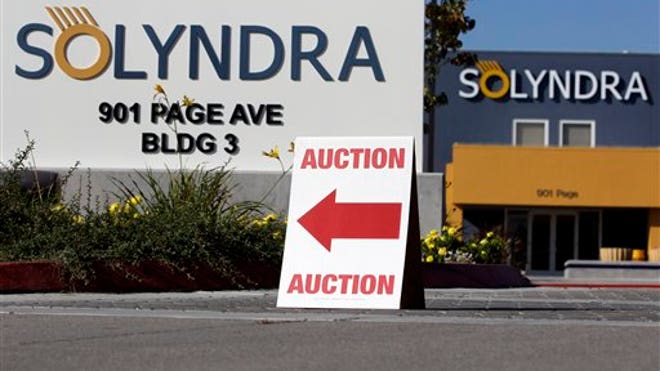
Furthermore, the federal government subsidizes certain manufacturers, like those experimenting with wind and solar power, and penalizes other manufacturers with ridiculous environmental rules and regulations, insuring that some entrepreneurs succeed and others fail.
Moreover, the federal government has declared that some producers and suppliers are "too big to fail," thus ensuring that favored financial speculators and bankers will never be subject to the judgement of consumers in the marketplace.
Imagine a political election in the United States in which a candidate was declared "too good to lose." Imagine an election wherein the government stuffs the ballot box with votes for its preferred candidate, or declares the winner of the election before the ballots are counted.
When the political election process is corrupted by government meddling, leftists, progressives, rightists and conservatives are all smart enough to notice and criticize government coercion and cronyism. They don't disparage the democratic system of free and honest elections.
However, when the economic marketplace is corrupted by government meddling, all these factions grow suddenly blind and stupid. Rather than criticize government coercion, interventionism and cronyism, they disparage the capitalistic system of free and voluntary exchange.

Recently, the US President signed into law sweeping health care legislation that will control and regulate every aspect of the industry from doctors and nurses to drug manufacturers and health insurers. For the first time in history, Americans will be forced to purchase a service from a government-designated supplier. If they refuse, they will be fined. Although this President says he believes in the free market, although these health sector producers and suppliers say they believe in market forces, although government bureaucrats condescend to say that consumers will still reign supreme in the health marketplace, we know by their actions that none of this is true. They pay lip service to the market but scramble to kiss the ring of the elite authority in charge.
The bottom line is that critics who decry free market capitalism are either ignorant or intellectually dishonest. They should know full well that the capitalism they criticize so violently is not free market capitalism, but crony capitalism, bought and paid for by the privileged cronies, owned and controlled by the powerful, parasitic few who pull the strings and levers behind the scenes.











